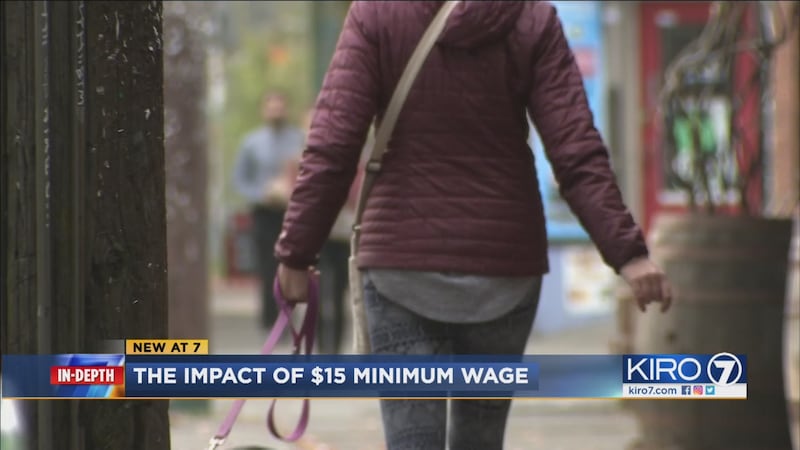We’ve heard conflicting reports about how the $15 per hour minimum wage would impact workers, businesses, and our local economy. Just last year, researchers at the University of Washington released a study that said the change would have a harmful economic effect.
Now, a year later, their analysis has evolved.
A UW economist involved in both studies, Jacob Vigdor, told KIRO 7’s Linzi Sheldon today that there are people who benefit and people who don’t.
One major takeaway: the $15 per hour minimum wage didn’t hurt employees the way they thought it might. Employers didn’t scale back their hours as much as predicted. Workers worked slightly less and made the same or slightly more.
Another impact, this one not as positive: they found it was harder for some new workers to enter the workforce with no experience because training was more expensive.
A Fremont-area business owner we spoke to said she thinks training people at the higher rate is worth the investment if they’re the right fit for the job.
Tonight on KIRO 7 at 7, we’re going in-depth on that study with the UW economist involved, and revealing more about why they now say the higher minimum wage is mostly an economic boon instead of a bust.
Cox Media Group








